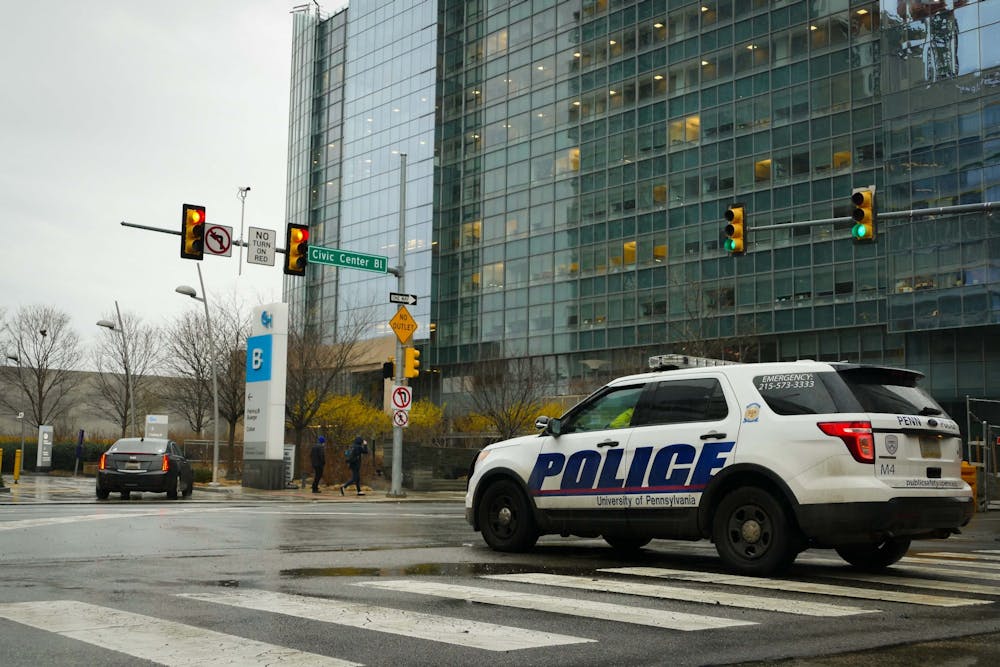A study conducted by two Penn researchers last year revealed that almost 900 jobs currently filled by sworn officers in the Philadelphia Police Department could be performed by civilians.
The researchers, Declan Sullivan and Alaynah Tombridge — who both received their Master of Public Administration degrees from Penn in 2021 — argued in the paper for what they called the “civilianization” of the police department, a shift that they wrote would generate higher levels of efficiency, productivity, and diversity.
Sullivan and Tombridge conducted their joint research while pursuing MPAs at Penn’s Fels Institute of Government. The study was authorized by the city in 2020 as a part of the PPD’s Crime Prevention & Violence Reduction Action Plan.
Employing more civilians in the police department is important, according to Sullivan and Tombridge, primarily because civilians typically earn less than sworn officers — presenting an opportunity for payroll cutbacks and a reallocation of the police budget. The report says that the push for civilianization is also relevant amid factors like the rising levels of gun violence in Philadelphia and an unprecedented labor shortage in the police department.
“There is an organizational need to utilize as many existing sworn officers within the Department as possible in roles that require law enforcement powers and training,” the report reads.
According to the study, civilians constitute around 23% of the total staff of large police departments nationwide, whereas they make up only 11% of the PPD. These jobs include responsibilities like graphic design, data entry, and human resource management.
Sullivan and Tombridge also report that besides reducing payroll expenses, civilianization would free up sworn officers to combat crime on the streets, amid increasing homicide rates. Efforts to curb gun crime have also increased following the murder of Nicolas Elizalde in late September, a 14-year-old boy who was fatally shot leaving his football scrimmage at Roxborough High School.
This is not the first time that Penn has collaborated with the city against gun violence. Last year, Penn’s Injury Science Center joined other Philly-based organizations to address high gun violence rates in West Philadelphia.
RELATED:
Morehouse College student sues Philadelphia Police after alleged violent encounter
Carjackings have increased while homicides have seen a slight decrease
There are challenges to overcome in the push for civilianization. The civil-service process through which civilians are hired includes a “residency rule” which requires them to have lived in Philadelphia one year before entering the department. Civilianization has also been associated with the “defund the police” movement, which is controversial among some and could deter its implementation, according to The Philadelphia Inquirer.
Despite these challenges, city executives, including Police Commissioner Danielle Outlaw, have expressed support for increased civilianization. Police officials discussed the subject with the Fraternal Order of Police Lodge 5 in August, and are awaiting a verdict this month.









